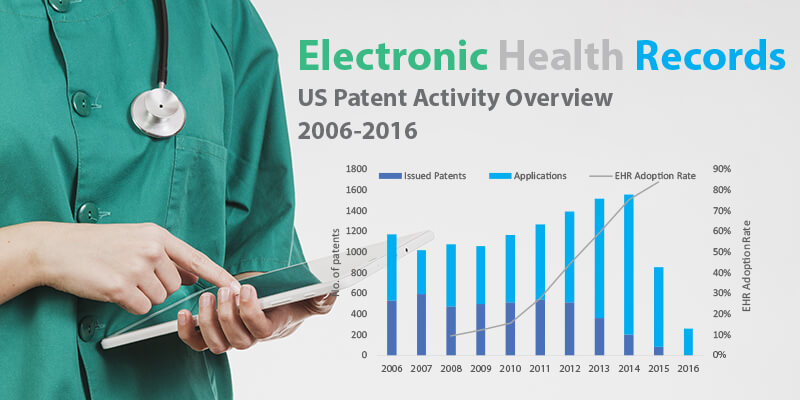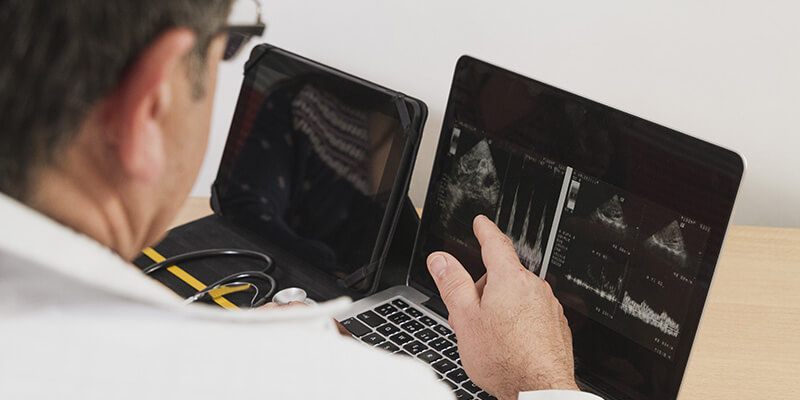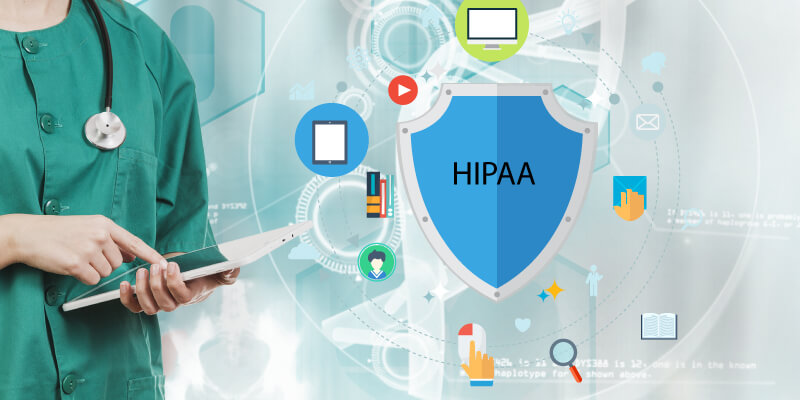[vc_row row_type=”row” use_row_as_full_screen_section=”no” type=”full_width” angled_section=”no” text_align=”left” background_image_as_pattern=”without_pattern”][vc_column][vc_single_image image=”2781″ img_size=”large” qode_css_animation=””][vc_empty_space][vc_column_text]Electronic health records (EHR) has been designed to enable efficient distribution and compilation of healthcare data. EHR is a functional counterpart of all separate physical documents stored for every care-related protocol and clinical event of a patient (including registration, medical history, vital signs monitoring, and laboratory results). With EHR, healthcare providers can easily access and share pertinent medical information about a patient for improved care delivery.
In the US, the adoption rate of basic EHR systems by non-Federal acute care hospitals has risen to as much as 83.8%. [1] US Legislation, such as the HITECH Act of 2009 and the Cures Act of 2016, have also mandated incentives to fast track the transition from paper-based medical records to digital medical record-keeping. The US Government also enacted laws in an effort to push for EHR transition of the US health industry. About $44,000 per physician can be provided as incentives for EHR implementation that demonstrate meaningful use.2[/vc_column_text][vc_column_text]
Timeline
- 2004 – Formation of the Office of the National Coordinator for Health Information Technology (ONC)
- 2007 – HL7 releases the first functional model standards for EHR systems
- 2009 – American Recovery and Reinvestment Act of 2009
– Health Information Technology for Economic and Clinical Health (HITECH) Act - 2010 – CMS finalized the EHR incentive program and defined the criteria for determining “meaningful use.”
- 2011 – ONC releases the final rule for Permanent Certification Programs for EHRs
- 2014 – ONC proposed technology certification criteria for EHRs
- 2016 – 21st Century Cures (Cures) Act
Also, in a national survey of physicians concerning EHR implementation [1]:
- 94% of providers reported that with EHR, records are readily available at point of care
- 88% of providers reported that EHR produced clinical benefits for practice
- 79% reported that with EHR, their practice is more efficient
- 75% delivered better patient care with EHR implementation
- 75% received laboratory results faster
EHR Patent Filings and Adoption Rates
Patent filing activity on EHR and adoption rates have continued to increase in recent years.
*Note that the USPTO’s First Office Action Pendency is at 15.9 months, as of February 2017.[/vc_column_text][vc_empty_space][vc_separator type=”normal”][vc_column_text]References:
1Jamoom, E., Patel, V., King, J., & Furukawa, M. “National perceptions of EHR adoption: Barriers, impacts, and federal policies.” National conference on health statistics. 8 Aug 2012.
2Shah, Jaymeen, Mirza Murtaza, and Emmanuel Opara. “Electronic Health Records: Challeges and Opportunities,” Journal of International Technology and Information Management 23.3/4 (2014): 189-204.[/vc_column_text][/vc_column][/vc_row]





